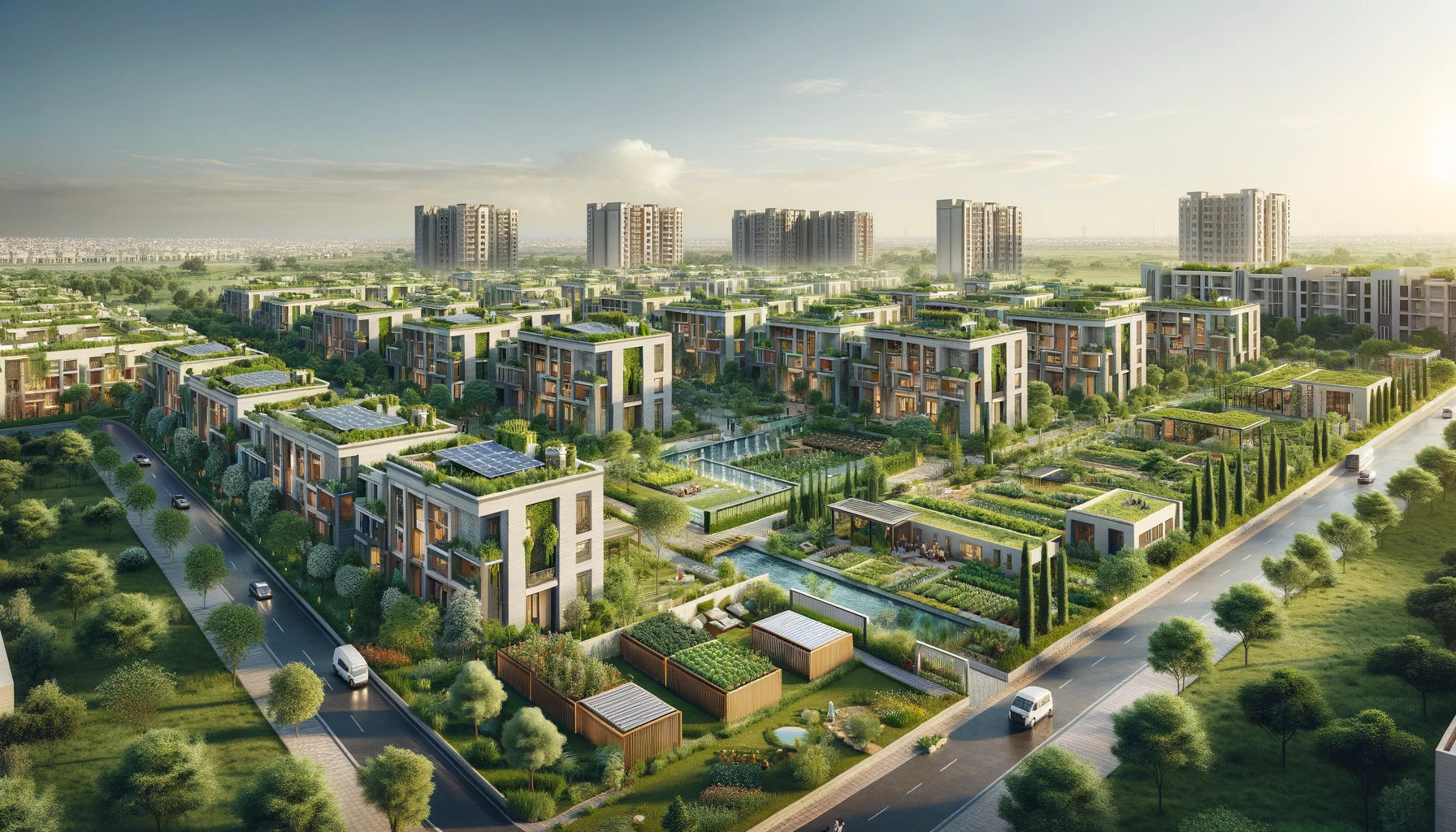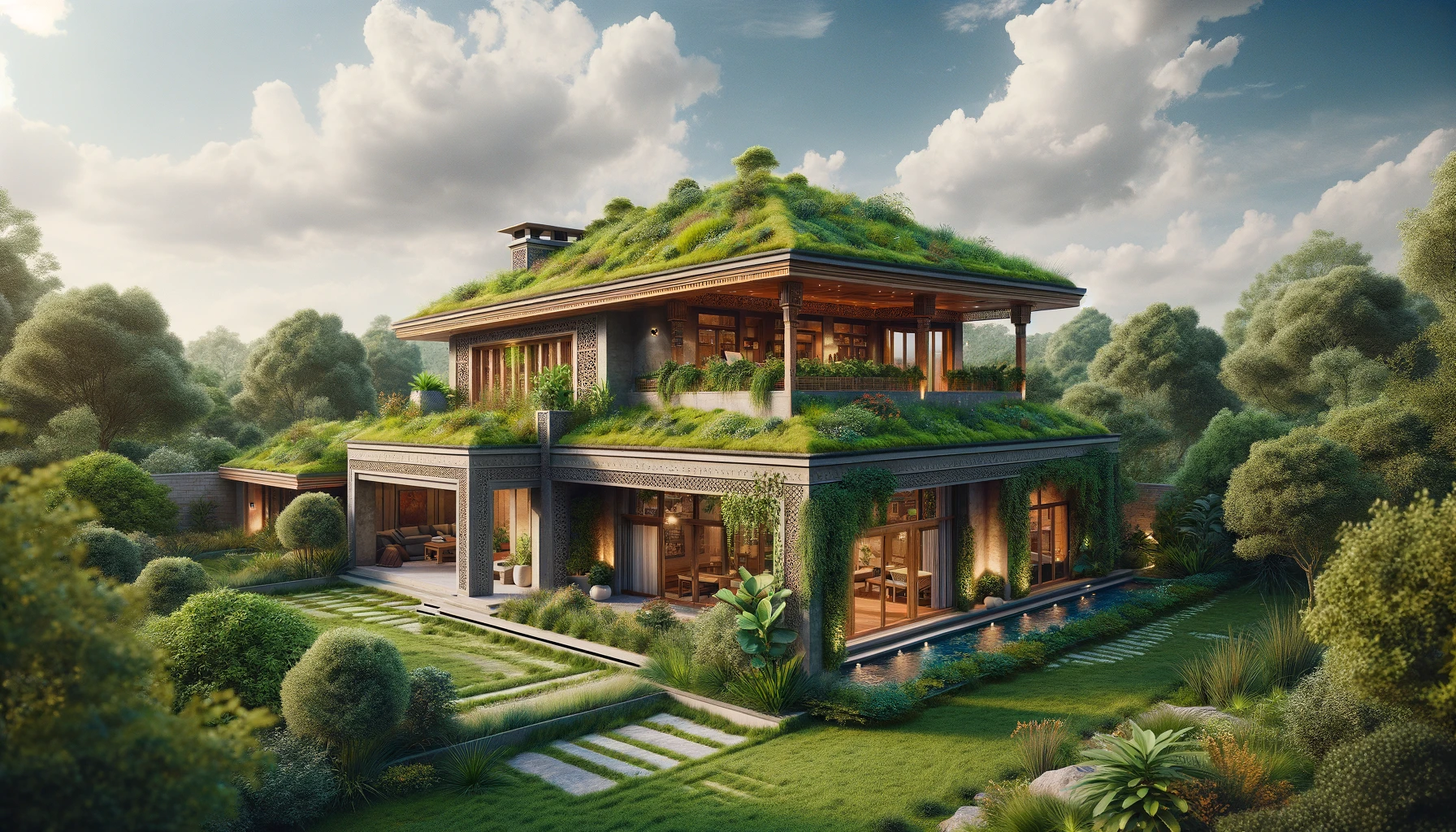Importance of Sustainable Living: Pakistani Real Estate
The global trend towards sustainable living is becoming more and more . And the world of real estate construction undergoes a fundamental change. In Pakistani real estate, where ecologically friendly methods are more important than ever, this paradigm change is particularly pertinent.
Recognizing our common responsibility to reduce the ecological imprint and protect the earth for future generations is what everyone of us needs to do. In the Pakistani real estate sector, this translates into a growing emphasis on green homes – residences designed and constructed with environmental sustainability in mind.
The inherent energy efficiency of green homes is one of their main advantages. These houses significantly lessen their dependency on conventional energy sources. This occursf due to the integration of solar panels, energy-efficient appliances, and smart home technologies. Thus, homeowners may enjoy more pleasing bills and a smaller carbon impact for the environment as well.
Moreover, green homes contribute to cost savings over the long term. While the initial investment in sustainable features may be higher than conventional counterparts, the ongoing operational savings in terms of energy and water usage often offset these upfront costs. This makes green homes not only environmentally friendly but also financially viable options for homeowners in Pakistan.
Apart from financial side, green homes also have a positive impact on the environment. Using renewable energy sources and reducing waste assist in addressing climate change and pollution.
In Pakistan, where rapid urbanization and industrialization are placing increasing pressure on natural resources and ecosystems, the adoption of sustainable living practices in the real estate sector is more critical than ever.

Sustainable Features in Green Homes
Green homes are characterized by a number of sustainable features designed to minimize environmental impact while maximizing comfort and efficiency for occupants.
Solar Panels
Solar energy is something Pakistan rich with. Hence, solar panels are the ideal renewable energy solution for green homes. They are to generate clean electricity to power household appliances and reduce reliance on the grid, thereby lowering electricity bills and carbon emissions.
Energy-Efficient Appliances
From refrigerators to air conditioners, energy-efficient appliances play a crucial role in reducing energy consumption and operating costs in green homes. These appliances are designed to use less energy while maintaining optimal performance, resulting in significant savings over time.
Green Roofs
Green roofs are becoming increasingly popular in Pakistani real estate for their numerous environmental benefits. By covering rooftops with vegetation, green roofs provide insulation, absorb rainwater, reduce urban heat island effect, and create habitat for wildlife, all while enhancing the aesthetic appeal of residential buildings.

Rainwater Harvesting Systems
Water scarcity is a pressing issue in many parts of Pakistan, making rainwater harvesting systems a valuable addition to green homes. These systems collect rainwater from rooftops and store it for non-potable uses such as irrigation, flushing toilets, and washing clothes, helping to conserve precious freshwater resources.
Passive Design Strategies
Passive design principles, such as orientation, insulation, and natural ventilation, are integral to the sustainability of green homes. By optimizing building orientation to maximize solar gain in winter and minimize heat gain in summer, incorporating high-quality insulation to reduce heat transfer, and utilizing natural ventilation to enhance indoor air quality, green homes achieve superior comfort and energy efficiency with minimal reliance on mechanical systems.
Low-Flow Fixtures
Water conservation is another key aspect of sustainable living in Pakistani real estate, and low-flow fixtures are instrumental in achieving this goal. By reducing water flow rates without compromising performance, low-flow fixtures such as faucets, showerheads, and toilets help conserve water and reduce water bills for homeowners.
These are just a few examples of the sustainable features commonly found in green homes in Pakistan. By integrating these features into residential developments, developers can create environmentally responsible properties that offer numerous benefits for both homeowners and the planet. In the next section, we will explore government initiatives and policies aimed at promoting sustainable development in the Pakistani real estate sector.
Government Initiatives and Policies
In recent years, the Pakistani government has taken significant strides towards promoting sustainable development in the real estate sector through various initiatives and policies aimed at incentivizing green building practices and reducing environmental impact.
National Energy Efficiency and Conservation Act (NEECA)
Enacted in 2016, the NEECA aims to promote energy efficiency and conservation across various sectors, including the built environment. Under this legislation, building codes and standards are being updated to incorporate energy-efficient design principles, incentivizing developers to adopt green building practices and technologies.
Green Building Codes
The Pakistan Green Building Council (PGBC) has been instrumental in developing green building codes and certification programs tailored to the local context. These codes outline guidelines for sustainable building design, construction, and operation, encouraging developers to incorporate energy and water-efficient features into their projects.
Renewable Energy Policy
The government has introduced policies and incentives to promote renewable energy sources, such as solar and wind power, as viable alternatives to traditional energy sources. This includes net metering programs that allow homeowners to sell excess solar energy back to the grid, providing financial incentives for investing in solar panels.
Tax Incentives
Tax incentives and rebates are being offered to developers and homeowners who invest in energy-efficient and sustainable building practices. These incentives may include tax credits for installing solar panels, energy-efficient appliances, and other green technologies, making sustainable living more financially attractive for stakeholders.
Public Awareness Campaigns
The government is actively engaged in raising public awareness about the importance of sustainable living and the benefits of green homes. Through educational campaigns, workshops, and outreach programs, policymakers are encouraging citizens to adopt eco-friendly practices and make informed decisions about their housing choices.
By implementing these initiatives and policies, the Pakistani government is laying the groundwork for a more sustainable and resilient real estate sector. However, the success of these efforts ultimately depends on widespread adoption and compliance by developers, homeowners, and other stakeholders across the country.
Sources:
Recent Posts
- Transformative Tales: Rhinoplasty in Turkey Inspires the Creation of New Homes in Pakistan
- Explore Pakistan's New Generation Housing Districts with Location Tracking Apps
- Secrets of Pakistan's Wealthiest Families: Where Do They Invest Their Money?
- Google Location History Explained: How to Use It Without Losing Your Privacy
